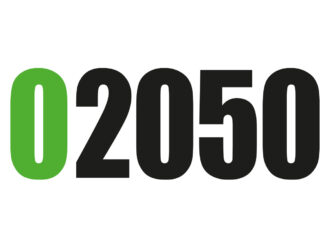The endowment fund of Clare College, Cambridge has announced that it will decarbonise its equity portfolio by transitioning to a new low carbon ESG fund created with Amundi, portfolio institutional finds out more from Paul Warren, bursar of Clare College and Ashley Fagan, head of ETF, indexing & smart beta strategy & business development for UK & Ireland for Amundi.
PI: Can you tell us why Clare College is targeting zero carbon?
Paul Warren: Readers may assume that our decision to target zero carbon in our endowment fund was the result of pressure from our students to see fossil fuel divestment. We would not be taking our fiduciary duty seriously if that were the case. Clare College’s endowment fund was established hundreds of years ago, and we have a responsibility to ensure that it continues to support our college community for many centuries more. The key reason for our decision is the endowment’s extremely long investment horizon; it is effectively managed as a perpetual. With such a long-time horizon, our investment committee believes that we must take account of the risk of strand- ed assets in our investment decisions. De- carbonising the endowment today positions the portfolio to deliver the best possible returns over the long term. The Amundi fund will get us close to carbon- free; we will then use impact investing and investing in green businesses, to reach our longer-term goal.
PI: You worked in partnership to design this fund. Did you consider an off-the-shelf fossil fuel free strategy?
PW: We considered a number of existing funds, but we could not find one that satisfied all of our requirements. We were seeking a fund that would allow us to achieve our ambitious goal of not simply removing fossil fuels from the portfolio but also removing all companies with coal revenues and the entire GICS energy sector. We also recognised that transitioning to a zero-carbon portfolio would result in the potential for an unintended value factor tilt, which might introduce tracking error versus our reference benchmark, and we needed a manager who could systematically monitor our factor exposure and control unintended bias.
Ashley Fagan: We often develop customised solutions for clients. This was an in-interesting case as university endowments are all connected, and while our seed investor was Clare College, Cambridge, we knew that Corpus Christi College, Oxford and a number of other colleges were in- interested in decarbonising their portfolios. With that in mind we worked with a number of Oxford and Cambridge college bursars and investment committees to define an ESG policy for the fund that met a wide range of requirements – in fact, not only or university endowments but also aligned to the needs of charities and other professional investors. Ultimately, Amun- di ESG Global Low Carbon is a cost-effective index-tracking fund that divests from all fossil fuel and carbon revenue exposure and offers an improved sustainability profile while retaining good diversifica- tion and a low tracking error. It also has an annual review cycle with investors to ensure that the environmental screening and sustainability targets remain fit for purpose.
PI: Given the stringent screening you have built into this fund, can it track the MSCI ACWI and retain diversification?
AF: Absolutely, while the fund excludes about 40% of the parent index, it still holds around 1000 stocks. We expect it to have a tracking error of under 0.50% vs the MSCI All Country World Index – delivering performance in line with the benchmark while reducing the risk associated to stranded assets and improving its overall ESG profile.
PI: Do you see this as a first step in the transition?
PW: Our £130m portfolio is roughly 65% equity; by transitioning our entire equity allocation to this fund, we clearly take a huge stride forward in managing the risk associated with carbon, but we will con- tinue to look at managing the risks in the rest of our portfolio.
AF: From our perspective, this is a continuation of our long history of climate index investing. We co-developed the first low carbon index fund in 2014 and were pioneers in launching the first Paris-Aligned index funds this summer. We are committed to transitioning more funds across our ETF, index and smart beta business line to low carbon or fossil free indices.
PI: How important is stewardship in an index fund like this?
PW: Stewardship was an important ele- ment in our selection process and our in- vestment committee spent a lot of time reviewing Amundi’s engagement and vot- ing policies. We wanted a partner with whom we could collaborate on steward- ship and Amundi has a strong track re- cord in engagement.
AF: Investing in a passive index fund does not prohibit the asset manager from voting at AGMs and having influence with issuers. As with all of Amundi’s index- managed strategies, the fund will benefit from the group’s engagement capabilities, working with companies to encourage best ESG practices and challenge them on ESG and climate risks.
To speak to Amundi about this strategy please email Ashley at ashley.fagan@amundi.com




